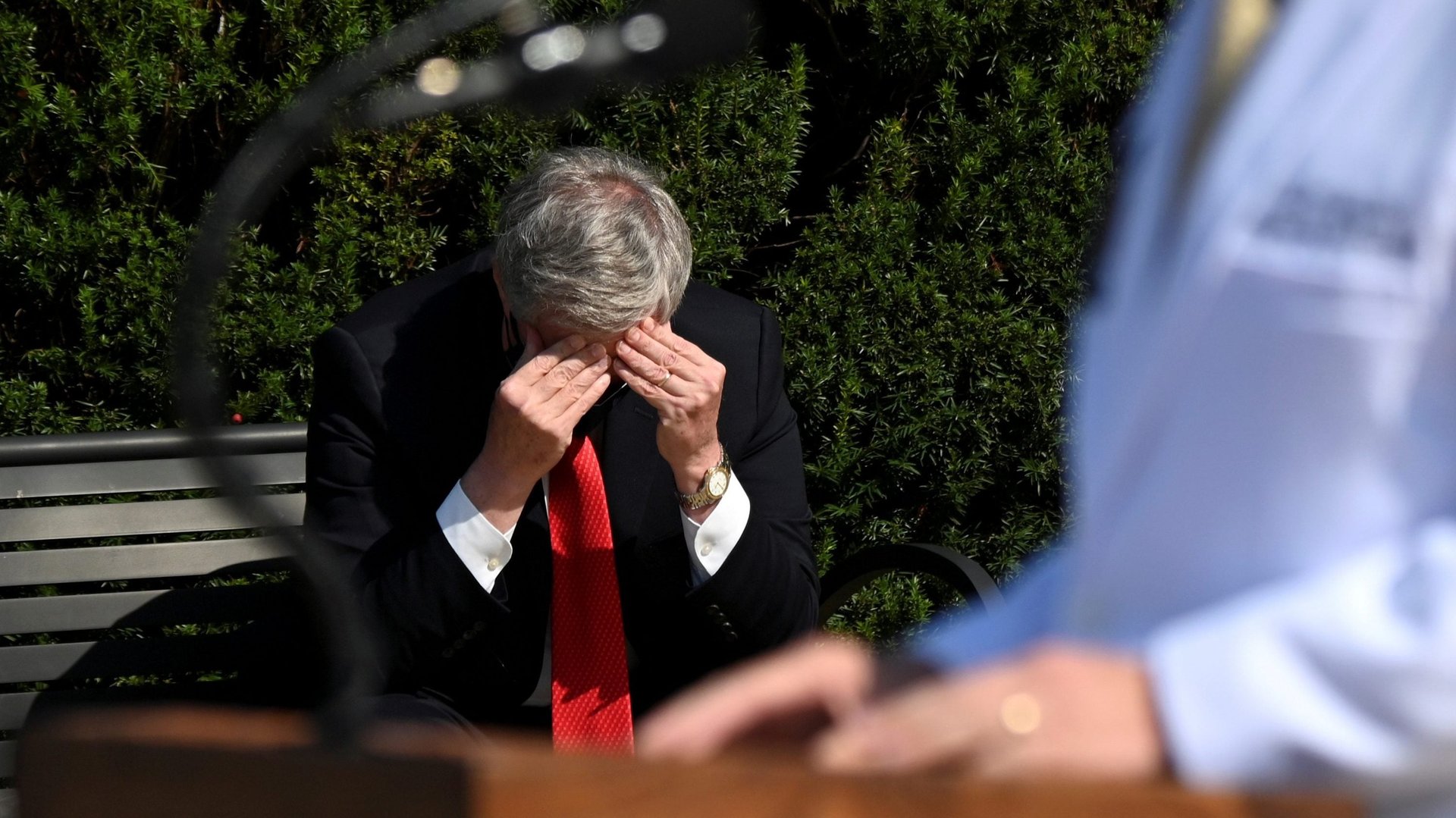The White House shows exactly how not to handle Covid-19 at work
With an outbreak of Covid-19 well underway at the West Wing, infecting everyone from Donald Trump himself to senior adviser Hope Hicks and campaign manager Bill Stepien, the White House has taken minimal steps to protect employees from the virus.


With an outbreak of Covid-19 well underway at the West Wing, infecting everyone from Donald Trump himself to senior adviser Hope Hicks and campaign manager Bill Stepien, the White House has taken minimal steps to protect employees from the virus.
“There are hundreds and hundreds of people who work on-complex, some who have families with high-risk family members,” a senior White House official told New York Magazine’s Intelligencer on Sunday. “Since this whole thing started, not one email has gone out to tell employees what to do or what’s going on.”
That night, the White House Management Office finally did send out an email to staff, reminding them to stay home if they feel any symptoms and to talk to their supervisor if they would prefer to work remotely.
But the slowness of the White House response—the message was sent three days after Hicks and Trump, among others, had tested positive for Covid-19—along with its lackluster contact tracing efforts thus far suggest that workers there cannot trust that their employer will take steps to keep them safe. What’s more, reports suggest that, in the wake of the pandemic, Trump created a work environment that actively endangered them.
Trump discouraged staffers from wearing masks
Trump’s history of downplaying the virus is well-known. Within the walls of the White House, he remained consistent, actively discouraging the people around him from wearing masks.
“President Trump at times told staff wearing masks in meetings to ‘get that thing off’,” the New York Times reports. Olivia Troye, a top aide who resigned in August, told the Times, “You were looked down upon when you would walk by with a mask.”
The White House relied on rapid testing
Instead, the president and other top officials relied on daily rapid testing, according to the Times. But no single measure is enough to keep workers safe. Instead, it’s necessary to create a “safety lasagna,” the term popularized by economist Emily Oster in discussing school reopenings.
“Safety lasagna” refers to the various protocols (from testing and temperature-taking to hand-washing and social-distancing) necessary to create three simultaneous layers of protection. These layers are: preventing incoming cases, preventing the spread of Covid-19 within the school (or, in this case, workplace), and preventing an outbreak of the virus beyond its walls.
Testing falls into the first layer of protection. It was meant to help prevent people infected with Covid-19 from entering the White House. But rapid tests can produce false negatives, especially early on in the disease, as Daniel Green, an assistant professor of pathology and cell biology at Columbia University, explains to NPR. “I think the takeaway is clear: Testing alone is not a sufficient strategy to prevent spread of the virus,” Green tells NPR.
Proving that point, White House press secretary Kayleigh McEnany announced Monday that she had tested positive for Covid-19 after testing negative every day since Thursday.
Lackluster contact tracing
Trump’s decision to spurn masks and pressure others to do the same not only put high-level staffers at risk, but also those at the White House residence who work as maids, butlers, housekeepers, cooks, and maintenance staff, as well as the janitors, administrative assistants, and other support staff at the West Wing. The White House’s purportedly lackadaisical efforts at contact tracing may well further expand the circle of people who fall ill or die.
While the White House says it is initiating contact tracing according to guidelines from the Centers for Disease Control, CNN surveyed more than a half-dozen people who had “gotten little or no outreach from the White House since coming into proximity with the first couple or their inner circle in the days since the diagnoses.”
The ways in which Trump’s White House has handled the outbreak are all indicative of an employer who is utterly indifferent to the health and safety of the people who work there. Trump adheres to a long family tradition of viewing illness as “a display of unforgivable weakness,” his estranged niece, Mary Trump, tells NPR. “That’s why [the U.S. is] in the horrible place we’re in.”